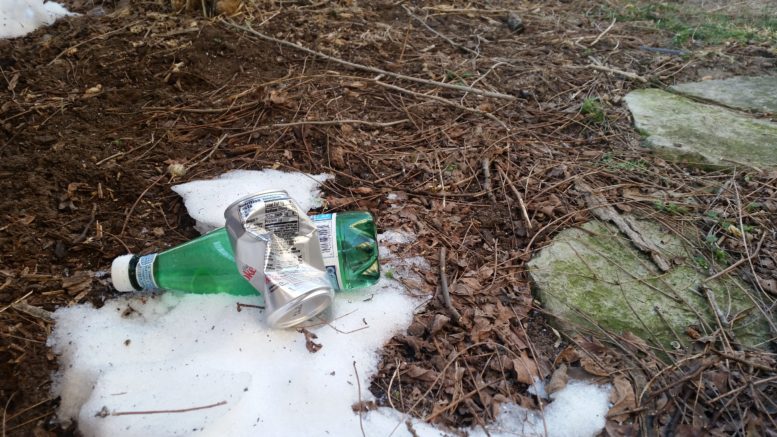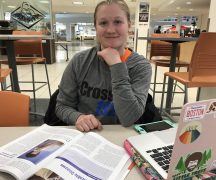By JAN LARSON McLAUGHLIN
BG Independent News
Residents of Bowling Green’s East Side often wake to find their yards littered with trash from party-goers. So in an effort to clean up the neighborhoods and sullied reputations of college students, plans have begun for some blocks to be “adopted” by student groups.
The Bowling Green City-University Relations Commission discussed the cleanups as a goal that can be accomplished rather than started then put on hold each time a break in semesters occurs.
“We talk about these things over and over again,” said Lisa Mattiace, vice president of the commission. But little is accomplished, the board agreed Tuesday evening.
Peter Rodriguez, a member of the Undergraduate Student Government, said that organization had begun talks about student groups adopting city blocks, similar to the “adopt a highway” program started by the Ohio Department of Transportation.
But Rodriguez added that the progress on the program “is very, very slow.” The project is brought up annually, but “there’s no traction.”
Members of the city-university commission agreed they could help provide the needed traction. They recognized this program as a project they could team up with the USG to get accomplished, possibly this spring semester. And once started, it would be easy to continue every semester.
“I think it’s commendable for the USG to be taking that on,” commission member Chris Ostrowski said.
Tom Mellott, also on the commission, suggested that signs be erected identifying which group is responsible for which blocks. “I think it will help people understand that folks do care,” he said.
Julie Broadwell, a commission member who lives on the East Side, was asked to identify the 10 city blocks most in need of being “adopted.”
Barb Ruland suggested the commission could help by getting signage and providing bags for the trash. Only the areas between the sidewalks and streets would be picked up, so the students wouldn’t be entering private lawns.
Mattiace pointed out that the project should be more than just trash pickup. “I don’t want the students to think they are garbage collectors for the city.” It was suggested that residents be notified of the pickups so they would not only be aware, but so they could join in the cleanups if they wished.
Commission member Michael Oiler said he would introduce the project to Graduate Student Senate to see if that group would like to get on board also.
“We’re going to be appealing to the 15 percent of the students who actually care,” Oiler said.
Rodriguez said the program could be one way to encourage accountability by students. “We are part of the city,” he said.
The next meeting of the city-university commission is Feb. 9 at 7 p.m.




